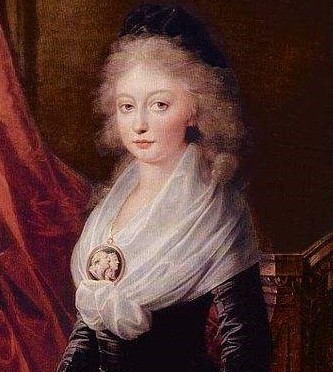Marie-Therese did not like to think of the time she spent in the cell and would not like to be remembered for being a prisoner in it for so long. Hopefully, she wouldn’t mind being regarded as an example on how to deal with loneliness and painful circumstances.
In an earlier article, I wrote about her aunt Elisabeth helping her find ways to cope and what to do when she was completely alone. Her aunt advised her to keep quiet around guards, When Marie-Therese was alone and needed to voice her frustrations, she turned to writing. Writing was a means of survival. She called herself “the most unhappy creature in the world.” No matter how depressing her writings, writing kept her from going totally insane.
Reading Treasures: A Retreat for Everything Marie Antoinette included a translation of some of Marie-Therese’s poetry in their post called “I was your king’s daughter:the poetry of Marie Therese Charlotte in captivity” Her poem “I Was Your King’s Daughter” was found in a book kept by family of Madeleine Bocquet-Chanterenne. The translation in English reads:
separated from all my family.
I languish in this sad jail
Alas! I say with good reason
Even though I am alone and sad
My jail would appear happy to me
I asked to be reunited
But as an answer, my jailers
Say: this has nothing to do with us.
Spread your blessings on her,
God! Open promptly your jail.
I was sleeping peacefully in my bed.
I got suddenly woken up
By the enraged noise of my locks.
They were coming to my door, they were knocking.
I replied immediately: who is there?
I was asked to open up, I replied:
I am getting up and leaving my bed.
I was hoping that I would get out,
I was expecting to leave the tower.
I go to the door, I finally open it!
They come in with my jailer
I look at them, hoping they would ask me
to follow them and come.
But alas! They stare at me
And suddenly without saying a word, they go out with my jailer.

Portrait of Marie Thérèse of France by Heinrich Furger.
